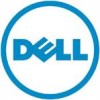Dell OptiPlex GX50 User Guide - Page 141
Taskbar Grouping, Notification Area Cleanup, Taskbar and Start Menu Properties - manual
 |
View all Dell OptiPlex GX50 manuals
Add to My Manuals
Save this manual to your list of manuals |
Page 141 highlights
4 When the Desktop Cleanup Wizard welcome screen appears, click Next>. 5 In the Shortcuts list, deselect any shortcuts you want to leave on the desktop, and then click Next>. 6 Click Finish to remove the shortcuts and close the wizard. The shortcuts are moved to the folder C:\Desktop Icons. To access desktop icons removed by Windows XP, click the Start button, and then click Dell Solution Center. Taskbar Grouping The Windows taskbar is a row of buttons that typically displays across the bottom of the screen. The taskbar includes the Start menu button and a button for each open application. (The taskbar also includes the Quick Launch icons and the notification area.) Windows XP groups multiple instances of the same application on the taskbar. For example, if six instances of Internet Explorer are open, each displaying a button on the taskbar, Windows XP groups the buttons next to one another on the taskbar. If space becomes an issue on the taskbar, Windows XP consolidates all the Internet Explorer buttons into a single button. When clicked, that button expands to a menu of the six Internet Explorer active sessions. Notification Area Cleanup Over time, software icons tend to proliferate in the notification area, the area in the bottom right corner of the Windows desktop. Windows XP detects when icons in the notification area are not being accessed and hides them. A caret, or chevron, button indicates that there are hidden icons that can be viewed by selecting the button. You can also configure the notification area manually by right-clicking the taskbar, selecting Properties, and then clicking Customize... in the Taskbar and Start Menu Properties window. For example, you may choose to hide the antivirus program icon because it is rarely accessed, but display the audio volume icon because it is used frequently. The notification area cleanup feature is automatically enabled when the operating system is installed, but you may disable it by unchecking Hide inactive icons in the Taskbar and Start Menu Properties window. M i c r o so f t ® W i n d o ws ® XP Fe a tu r e s 139















